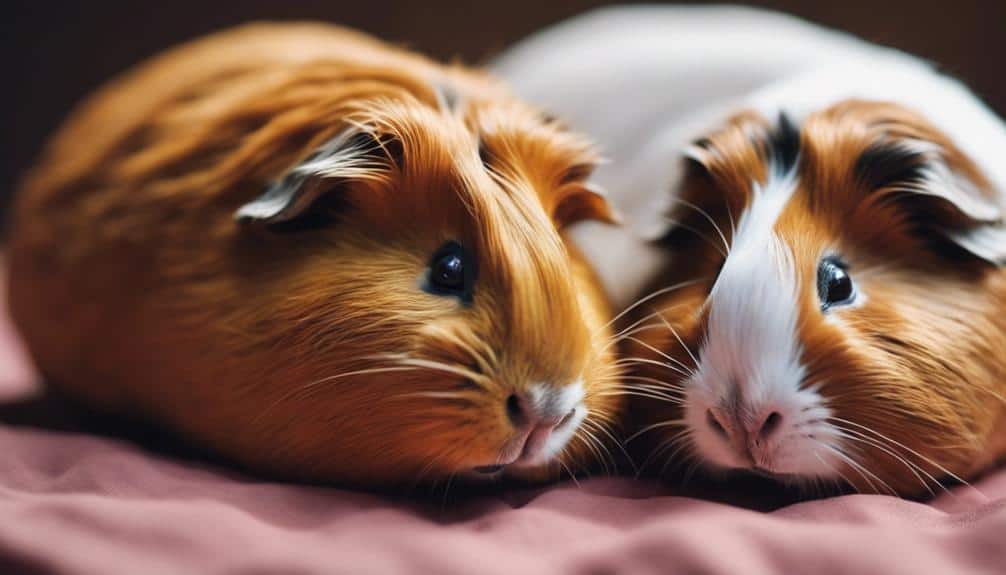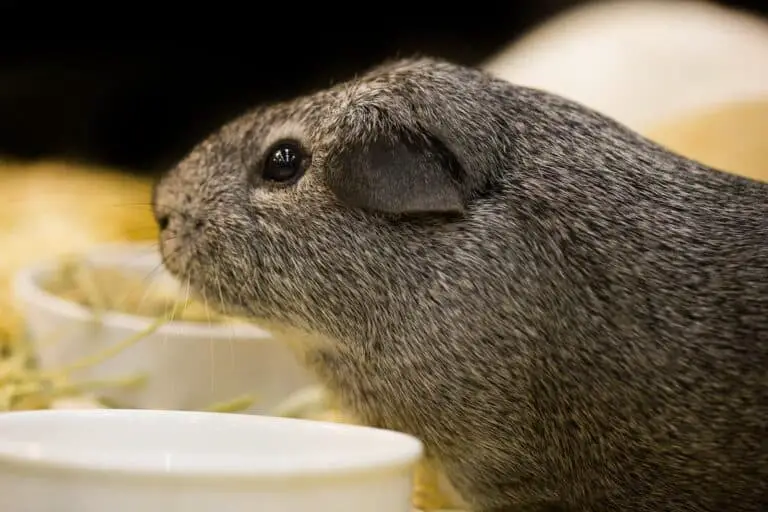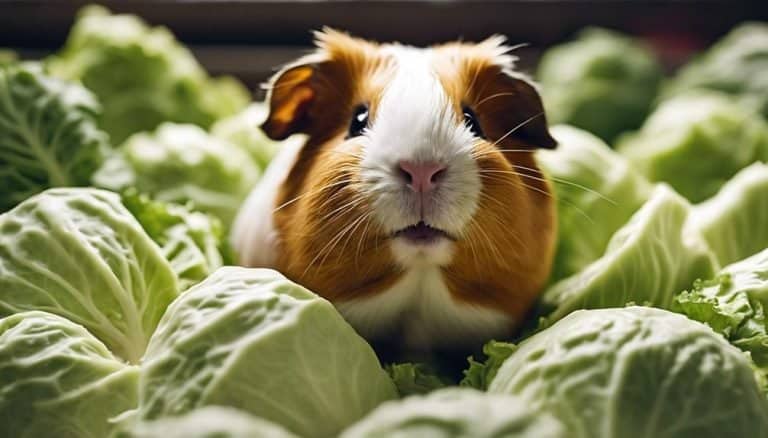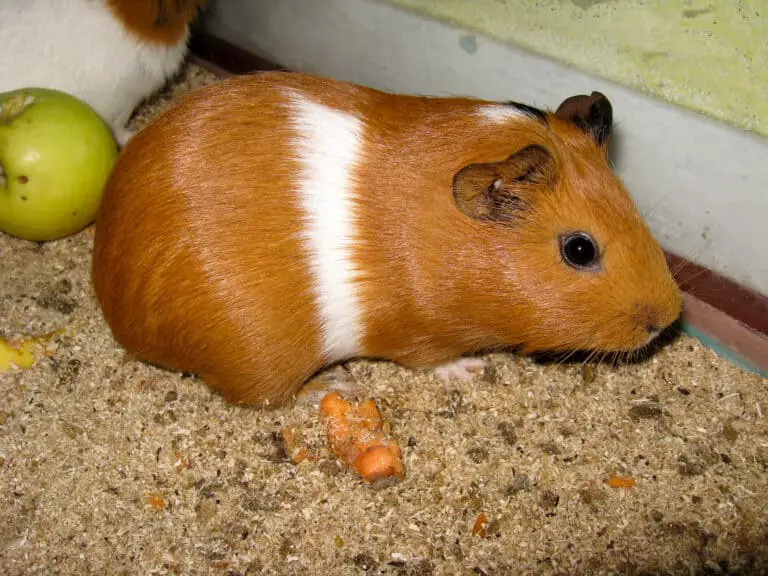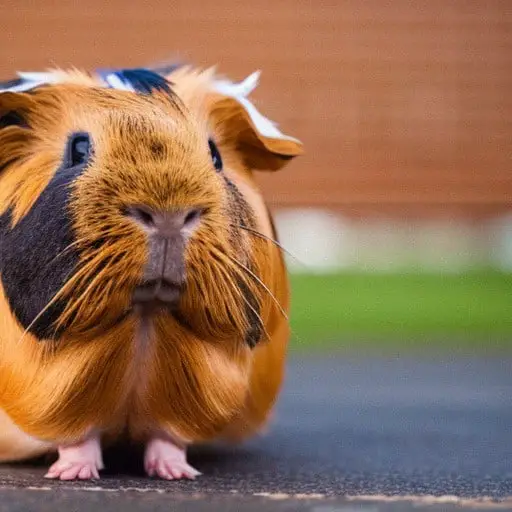Do Guinea Pigs Sleep Differently? Explained
As we explore the intriguing world of guinea pig behavior, it’s fascinating to note that these adorable creatures sleep for about four to six hours a day.
But have you ever wondered if guinea pigs sleep differently than other animals?
Let’s unravel the mysteries behind their sleeping habits and discover what sets these furry companions apart when it comes to getting some shut-eye.
Sleep Patterns of Guinea Pigs
Guinea pigs exhibit unique sleep patterns characterized by short power naps throughout the day, staying alert for potential predators with eyes open. Unlike humans, these crepuscular animals are most active during dawn and dusk, adapting their sleeping habits to their natural instincts.
It’s intriguing that most guinea pigs sleep with their eyes open, a defense mechanism honed through evolution to guarantee their survival in the wild. This behavior allows them to quickly detect any signs of danger, showcasing their vigilance even during rest.
Their intermittent napping behavior, totaling about 4 to 6 hours a day, enables guinea pigs to recharge swiftly while remaining vigilant. This pattern reflects their need for safety and readiness to respond to any threats. By understanding these distinctive sleep patterns, we gain insight into the adaptive nature of guinea pigs and how they’ve evolved to thrive in their environments.
Factors Affecting Guinea Pig Sleep
In considering the factors that influence the sleep patterns of these crepuscular animals, it becomes evident that their natural instincts play a significant role in shaping their rest periods. Guinea pigs have unique sleeping habits that contribute to their overall health and happiness:
- Natural Habitat: Guinea pigs’ sleep is influenced by their natural habitat, where they need to remain alert for potential predators. This instinctual behavior impacts the way they nap throughout the day and night.
- Activity Levels: These animals are most active during dawn and dusk when temperatures are best. This increased activity during these times may affect the duration and frequency of their naps.
- Safety and Comfort: Guinea pigs feel safest when sleeping in sheltered spots, which mimics their behavior in the wild. Ensuring they’ve secure and cozy sleeping areas is crucial for their well-being.
Understanding these factors can help guinea pig owners create an environment that supports their odd sleeping patterns, promoting a healthy and happy life for these adorable pets.
Understanding Guinea Pig Sleep Cycles
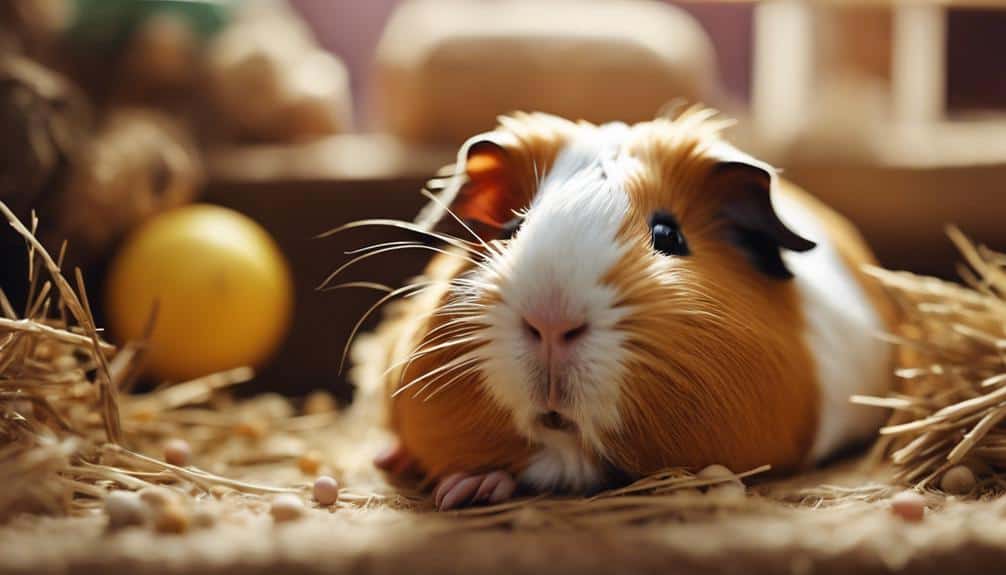
Understanding the sleep cycles of guinea pigs reveals their unique pattern of short, intermittent naps throughout the day and night. Unlike humans who’ve consolidated periods of sleep, guinea pigs nap sporadically.
These small pets are crepuscular animals, meaning they’re most active during the twilight hours of dawn and dusk. Sleeping with their eyes open is a natural behavior that helps guinea pigs stay alert to potential threats, a trait influenced by their prey animal instincts.
Their sleep patterns are finely tuned to make sure they can quickly respond to danger, reflecting their survival instincts in the wild. By understanding how much sleep guinea pigs need and the factors that affect their sleep, such as environmental stimuli and stress levels, we can better care for these adorable creatures and create an ideal sleeping environment for them.
How to Improve Guinea Pig Sleep
To optimize guinea pig sleep quality, one should focus on creating a comfortable and secure sleeping environment. Guinea pigs thrive in cozy hiding spots that provide them with a sense of security and privacy. By implementing the following practices, you can enhance the sleeping experience for your furry companions:
- Provide Dark and Cozy Hiding Spots: Offering tunnels or nest boxes where guinea pigs can retreat to can greatly improve their sleep quality.
- Maintain a Consistent Routine and Environment: Establishing a predictable daily routine and guaranteeing a stable environment can help guinea pigs feel secure, leading to better sleep patterns.
- Ensure Proper Ventilation and Comfortable Bedding: Adequate ventilation in the cage, along with soft bedding like fleece, contributes to a conducive sleep environment for guinea pigs.
Notable Differences in Guinea Pig Sleep
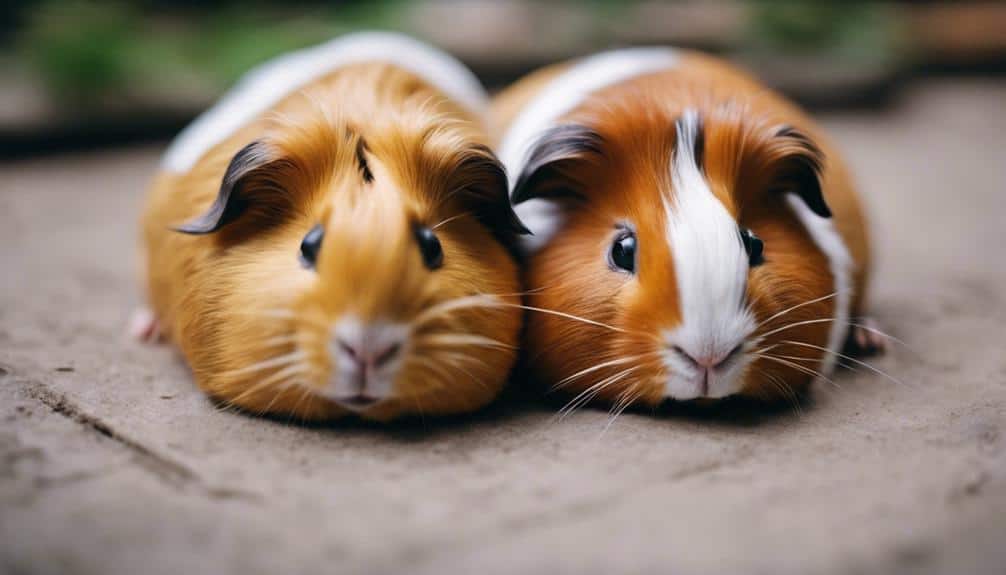
Notable variations distinguish guinea pig sleep habits from those of other common household pets. Guinea pigs, unlike many pets, aren’t strictly diurnal or nocturnal creatures. They exhibit crepuscular behavior, meaning they’re most active during dawn and dusk. This can affect their sleep patterns, causing them to have multiple short naps throughout the day and night.
In the wild, guinea pigs are prey animals, which influences their sleep behavior. They often sleep with their eyes open, ready to detect any signs of danger. Providing a safe and dark sleeping environment, such as a cozy hideout in their cage, can help them feel secure and promote better rest.
It’s essential for guinea pig owners to observe their pets’ sleep habits regularly. Any changes like increased lethargy or spending extended periods lying on their side could be signs of underlying health issues that require attention. Understanding these notable differences in guinea pig sleep can help guarantee the well-being of these beloved pets.
Conclusion
To sum up, it’s clear that guinea pigs have some unique sleeping habits that are influenced by their natural instincts. By understanding their sleep patterns and providing a comfortable environment, we can make sure they get the rest they need to stay healthy and alert.
So next time you see your furry friend napping during the day, remember they’re just following their instincts – not being lazy!
Stay tuned for more fascinating insights into the world of guinea pig sleep.

